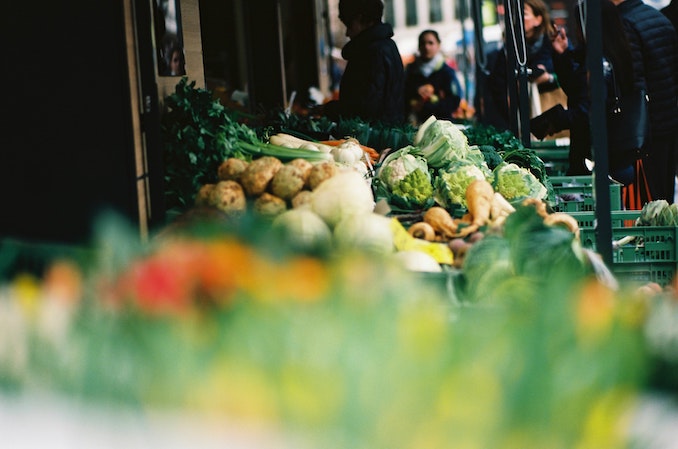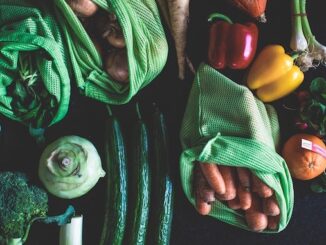We’ve all be told to stay home to help flatten the curve. By doing so we’re protecting ourselves and others from the COVID-19 virus. Pretty much everything in the city has been shut down. But what is happening to the people experiencing homelessness and those in need within our communities who rely on services like drop-ins, shelters, food banks and health services? Where are they going to stay warm, get something to eat and have a place to feel safe?

Services like Ve’ahavata have been getting into their vans and into the communities to get meals and essentials to this often forgotten segment of our population. SECOND HARVEST had to quickly adapt to the fast changing landscape to get more food to more people across the country.
“Our outreach van services are under a tremendous strain right now,” says Cari Kozierok, Executive Director of Ve’ahavata, who’s seen first-hand the toll the current situation is taking on Toronto streets. “We are struggling to afford the cost of serving 300 meals per shift compared to the 100 we were serving just weeks ago. Plus we need to provide the staffing of our van, personal protective equipment for them, and critical supplies needed by the people living on the street.” People are telling her and that the meal they receive from them is the first food they have had that day.
Kozierok tells us her organization is seeing an incredible increase, approximately three times, in the numbers of people who are living in tents on the streets of Toronto due to what appears to be fear of going into the overcrowded shelters where social distancing is impossible. “The City has focused its homelessness COVID efforts, rightfully, on the overcrowded shelter system,” she says. “However, rough sleepers are literally left out in the cold with no access to ordinary services, which have been closed, and lacking access to protections from the virus. Furthermore, clients are expressing concern about going into isolation and experiencing serious withdrawal without the proper supports. We have even heard a report from a rough sleeper whom our outreach workers have referred for COVID being refused testing on the grounds that they have not travelled recently.”
She also tells us, “Ve’ahavata outreach workers have been doing a tremendous job while lacking critical public health information and support around actions to take with rough sleepers with COVID symptoms. The impact on the City’s efforts to contain the spread could be undone entirely in this population alone.”
How can the public help?
“What we really need from the public right now are donations to our COVID-19 Homelessness Response Fund which they can find at COVID19helphomeless.ca” said Kozierok. The organization does not receive city funding but depends on individuals to make up most of their funds. Donations to the COVID-19 Response Fund will continue to help provide food, supplies and support to those living on the streets.
If giving financial donations right now is not possible, here’s a list of what is needed:
-Cases of water
-Sleeping bags — new or gently used (washed)
-Protein bars protein drinks and non-perishable snacks,
-Men’s pants, jeans, sweatshirts, hoodies – new or gently used (washed)
-New men’s and women’s underwear and socks
-Deodorant sticks
-Disinfectant wipes
-Hand sanitizers
Amazon gift cards (call/email for details) can also be donated to the organization so they could purchase what’s needed directly. They’ve also created an Amazon Wish List that can be accessed.
Items can be dropped off in bins at the Ve’ahavata offices at 200 Bridgeland Avenue, Unit D (near Yorkdale).
*****
SECOND HARVEST is a well-known food rescue charity that’s purpose is twofold — to not let food go to waste (better for the environment) and to provide hunger relief to help feed people through numerous programs including shelters and food banks. Throughout March, Second Harvest distributed over 800,000 lbs of food to Canadians in need and also partnered with Toronto Public Library branches to help distribute food and reduce the impact COVID-19 has had on food insecurity.
“When COVID-19 hit, everything changed in a day for us: we implemented pandemic protocols for our staff and drivers; we rolled out a national food rescue strategy and haven’t looked back,” said Lori Nikkel, CEO of Second Harvest. “Nothing has stayed the same from one day to the next. The support we provide with our fleet of trucks changes daily as social service agencies pause their food support, while others start to provide food.”
This has resulted in constant route changes for Second Harvest, their fleet and staff, and more strain on the services that remain open not just in our city. “The amount of food that we are receiving is incredible but it’s also creating a challenge making sure we can get it right across the country,” said Nikkel. “We had to quickly do cost containment as our fundraising was severely impacted. We had to postpone our signature event Toronto Taste, which raises $1M in funding, and our peer to peer fundraising ceased, which left us with a $2M gap in our budget. However – and this is a huge “however” – we have seen an amazing outpouring of generosity. We’ve heard from individuals who are taking care of family members in quarantine who are donating to help people in their position, and major funders and corporations are stepping up to meet a national need. It’s been incredible.”
What can we do to help Second Harvest continue to maintain this critical service during COVID-19?
Donations to the Second Harvest COVID-19 Emergency Relief Fund are greatly needed, and you can help food programs in your community by spreading the word about the funding opportunities available on Second Harvest’s online food donation platform, FoodRescue.ca.




